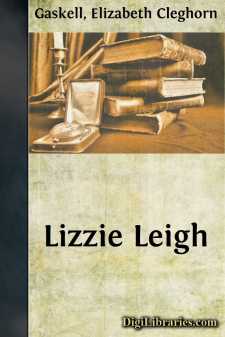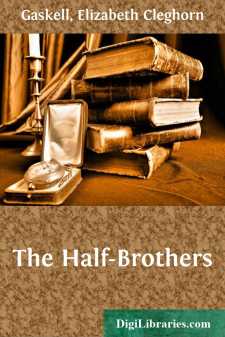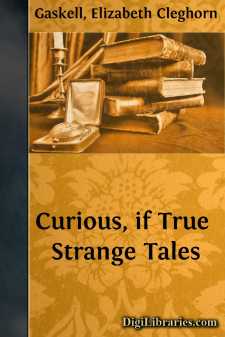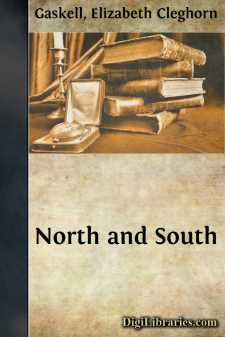Categories
- Antiques & Collectibles 13
- Architecture 36
- Art 48
- Bibles 22
- Biography & Autobiography 813
- Body, Mind & Spirit 141
- Business & Economics 28
- Children's Books 12
- Children's Fiction 9
- Computers 4
- Cooking 94
- Crafts & Hobbies 4
- Drama 346
- Education 46
- Family & Relationships 57
- Fiction 11826
- Games 19
- Gardening 17
- Health & Fitness 34
- History 1377
- House & Home 1
- Humor 147
- Juvenile Fiction 1873
- Juvenile Nonfiction 202
- Language Arts & Disciplines 88
- Law 16
- Literary Collections 686
- Literary Criticism 179
- Mathematics 13
- Medical 41
- Music 40
- Nature 179
- Non-Classifiable 1768
- Performing Arts 7
- Periodicals 1453
- Philosophy 64
- Photography 2
- Poetry 896
- Political Science 203
- Psychology 42
- Reference 154
- Religion 513
- Science 126
- Self-Help 83
- Social Science 81
- Sports & Recreation 34
- Study Aids 3
- Technology & Engineering 59
- Transportation 23
- Travel 463
- True Crime 29
Elizabeth Cleghorn Gaskell
Elizabeth Cleghorn Gaskell (1810-1865) was a prominent British novelist and short story writer, renowned for her detailed portrayals of Victorian society and its struggles. Her works, including "North and South" and "Cranford," often addressed social issues such as class disparity and women's rights. Gaskell's biography of her friend Charlotte Brontë is also highly regarded, offering an intimate glimpse into the life of the famous author.
Author's Books:
Sort by:
PORTION I. There is a mill by the Neckar-side, to which many people resort for coffee, according to the fashion which is almost national in Germany. There is nothing particularly attractive in the situation of this mill; it is on the Mannheim (the flat and unromantic) side of Heidelberg. The river turns the mill-wheel with a plenteous gushing sound; the out-buildings and the dwelling-house of the...
more...
CHAPTER I There is an assize-town in one of the eastern counties which was much distinguished by the Tudor sovereigns, and, in consequence of their favour and protection, attained a degree of importance that surprises the modern traveller. A hundred years ago its appearance was that of picturesque grandeur. The old houses, which were the temporary residences of such of the county-families as contented...
more...
A DIFFICULT QUESTION Philip went to bed with that kind of humble penitent gratitude in his heart, which we sometimes feel after a sudden revulsion of feeling from despondency to hope. The night before it seemed as if all events were so arranged as to thwart him in his dearest wishes; he felt now as if his discontent and repining, not twenty-four hours before, had been almost impious, so great was the...
more...
HAPPY DAYS And now Philip seemed as prosperous as his heart could desire. The business flourished, and money beyond his moderate wants came in. As for himself he required very little; but he had always looked forward to placing his idol in a befitting shrine; and means for this were now furnished to him. The dress, the comforts, the position he had desired for Sylvia were all hers. She did not need to...
more...
MONKSHAVEN On the north-eastern shores of England there is a town called Monkshaven, containing at the present day about fifteen thousand inhabitants. There were, however, but half the number at the end of the last century, and it was at that period that the events narrated in the following pages occurred. Monkshaven was a name not unknown in the history of England, and traditions of its having been...
more...
CHAPTER I. When Death is present in a household on a Christmas Day, the very contrast between the time as it now is, and the day as it has often been, gives a poignancy to sorrow—a more utter blankness to the desolation. James Leigh died just as the far-away bells of Rochdale Church were ringing for morning service on Christmas Day, 1836. A few minutes before his death, he opened his already...
more...
THE OLD NURSE'S STORY You know, my dears, that your mother was an orphan, and an only child; and I daresay you have heard that your grandfather was a clergyman up in Westmoreland, where I come from. I was just a girl in the village school, when, one day, your grandmother came in to ask the mistress if there was any scholar there who would do for a nurse-maid; and mighty proud I was, I can tell ye,...
more...
THE DAWN OF A GALA DAY To begin with the old rigmarole of childhood. In a country there was a shire, and in that shire there was a town, and in that town there was a house, and in that house there was a room, and in that room there was a bed, and in that bed there lay a little girl; wide awake and longing to get up, but not daring to do so for fear of the unseen power in the next room—a certain...
more...
CHAPTER I 'HASTE TO THE WEDDING' 'Wooed and married and a'.' 'Edith!' said Margaret, gently, 'Edith!' But, as Margaret half suspected, Edith had fallen asleep. She lay curled up on the sofa in the back drawing-room in Harley Street, looking very lovely in her white muslin and blue ribbons. If Titania had ever been dressed in white muslin and blue ribbons,...
more...











